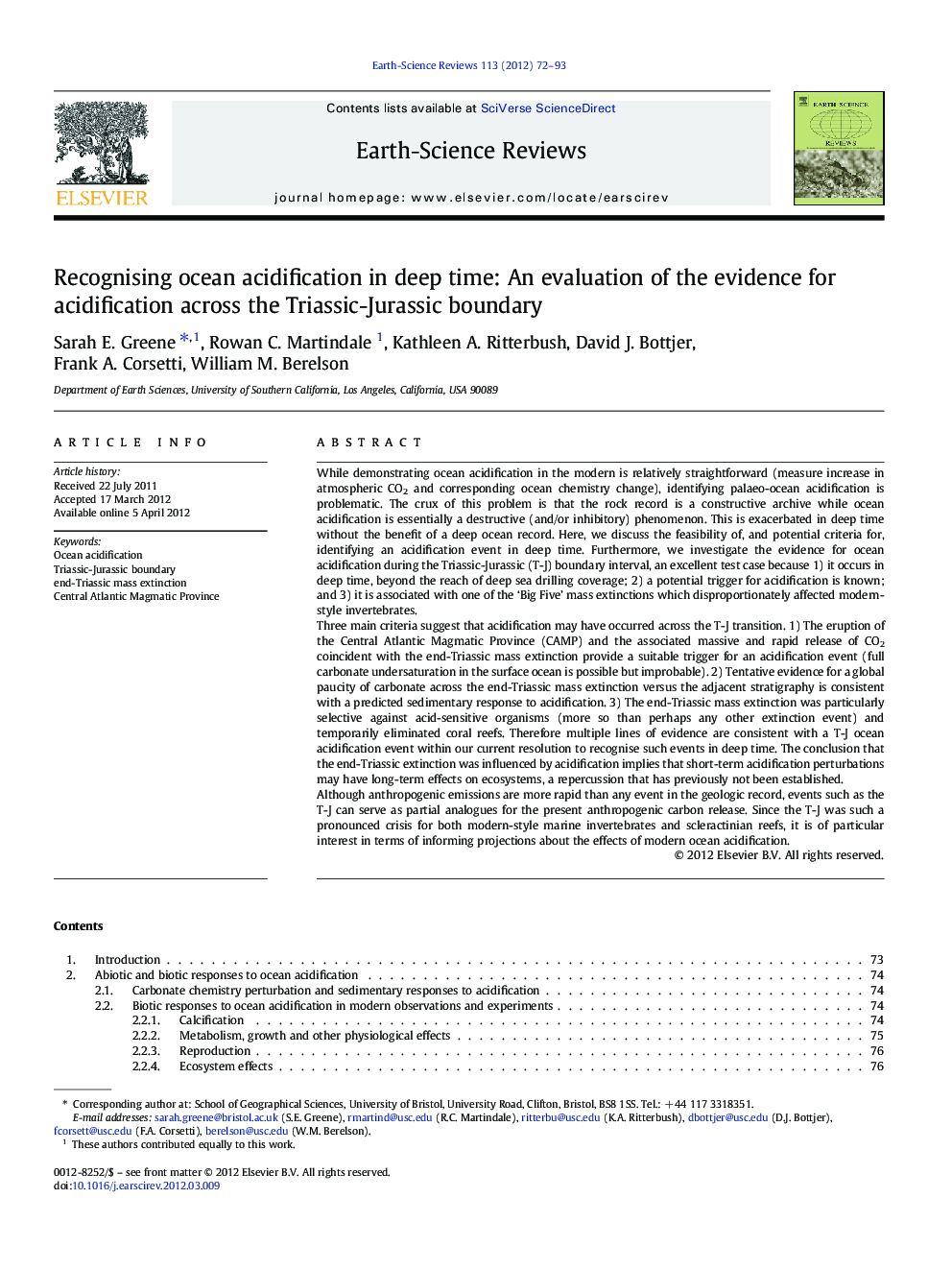| کد مقاله | کد نشریه | سال انتشار | مقاله انگلیسی | نسخه تمام متن |
|---|---|---|---|---|
| 4725928 | 1639991 | 2012 | 22 صفحه PDF | دانلود رایگان |

While demonstrating ocean acidification in the modern is relatively straightforward (measure increase in atmospheric CO2 and corresponding ocean chemistry change), identifying palaeo-ocean acidification is problematic. The crux of this problem is that the rock record is a constructive archive while ocean acidification is essentially a destructive (and/or inhibitory) phenomenon. This is exacerbated in deep time without the benefit of a deep ocean record. Here, we discuss the feasibility of, and potential criteria for, identifying an acidification event in deep time. Furthermore, we investigate the evidence for ocean acidification during the Triassic-Jurassic (T-J) boundary interval, an excellent test case because 1) it occurs in deep time, beyond the reach of deep sea drilling coverage; 2) a potential trigger for acidification is known; and 3) it is associated with one of the ‘Big Five’ mass extinctions which disproportionately affected modern-style invertebrates.Three main criteria suggest that acidification may have occurred across the T-J transition. 1) The eruption of the Central Atlantic Magmatic Province (CAMP) and the associated massive and rapid release of CO2 coincident with the end-Triassic mass extinction provide a suitable trigger for an acidification event (full carbonate undersaturation in the surface ocean is possible but improbable). 2) Tentative evidence for a global paucity of carbonate across the end-Triassic mass extinction versus the adjacent stratigraphy is consistent with a predicted sedimentary response to acidification. 3) The end-Triassic mass extinction was particularly selective against acid-sensitive organisms (more so than perhaps any other extinction event) and temporarily eliminated coral reefs. Therefore multiple lines of evidence are consistent with a T-J ocean acidification event within our current resolution to recognise such events in deep time. The conclusion that the end-Triassic extinction was influenced by acidification implies that short-term acidification perturbations may have long-term effects on ecosystems, a repercussion that has previously not been established.Although anthropogenic emissions are more rapid than any event in the geologic record, events such as the T-J can serve as partial analogues for the present anthropogenic carbon release. Since the T-J was such a pronounced crisis for both modern-style marine invertebrates and scleractinian reefs, it is of particular interest in terms of informing projections about the effects of modern ocean acidification.
Journal: Earth-Science Reviews - Volume 113, Issues 1–2, June 2012, Pages 72–93